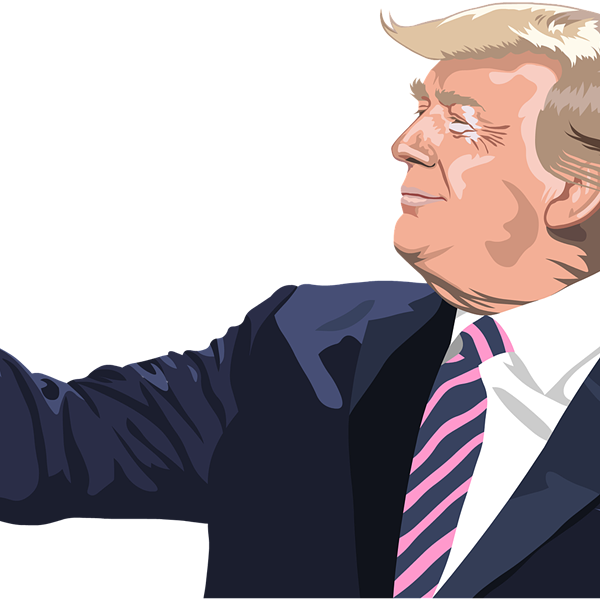In America today, perhaps in much of the Western world, we have the delusion that the default option for human political organizations is democracy.
When the Nazis in Germany, the Fascists in Italy, and the militarists of the Japanese imperial system were defeated, each of those countries became a democracy.
At the same time, a vast portion of the world went Communist. Their rhetoric featured democratic ideals, but they were totalitarian countries in which elections meant nothing and power was enforced by purges, secret police, and military force. Then, in 1989, the people of East Germany tore down the Berlin Wall. The West had been terrified of a "domino effect" for years. If one country went Red (when that color meant Commies, not a right-wing American state committed to saving the fetuses and killing the government), its neighbors would also fall. Now the tumbling went the opposite way, and the Eastern European regimes toppled, one after another, all by themselves. In 1991 the Union of Soviet Socialist Republics itself came apart, splintering into 15 separate nations, all eager, it appeared, to embrace good old American democracy.
Those two mega-episodes seemed proof that humans, given the chance, would organize their governments as democracies. The counter indications were dismissed. People on the left dismissed the dictatorships, along with the sectarian and ethnic violence of Africa and the Middle East, as legacies of colonialism. On the right, they dismissed the right-wing coups in Latin America as necessities in the fight against Communism. The Bush Administration, famous for its blunt-force simplemindedness, embraced the belief in democracy as the default position the way George embraced Christ on the campaign trail. Remove the Taliban from Afghanistan, voting would bloom like the poppies. Removing Saddam Hussein was "a watershed moment in the story of freedom," in which Iraqis would, naturally, choose democracy, and "serve as a dramatic and inspiring example of freedom for other nations in the region."
There are two great arguments for democracy. Autocratic and hereditary systems are bound to put idiots, incompetents, and blood-thirsty maniacs in charge at some point. They can only be removed through violence. Since the first thing any sensible ruler does is attempt to acquire a monopoly on violence, most revolts end in bloody failure. In a democracy, voters may elect leaders just as bad, but they have a limited time in which to do their damage, and if the population doesn't like their government run by fools, warmongers, murderers, and thieves, they can replace them, peacefully. This is much more pleasant. And less expensive. Yes, strange as it may seem, even an American presidential election is cheaper than a full-blown revolution.
Yet people don't always choose democracies. And when they choose them, they don't always like them. They may become instant battlefields, like Iraq. The deposed despots may lie doggo for awhile, then relaunch themselves, with popular support, as in Afghanistan. Leaders, once elected, may make moves to consolidate their power that others consider to be beyond the bounds of good taste. That appears to be the primary complaint in Egypt. The same could be said for the Islamic Republic of Iraq.
The presumption that democracy is the default position of humanity is charming. But it's probably false. The handmaidens of that ideal, who act as if democracy is easy, should be gently spanked and sent back to school.
Certainly in modern times, America is the birthplace of democracy. Even before the Revolution it was being tried in the individual states with the Virginia House of Burgesses, the Mayflower Compact, and William Penn's Frame of Government.
But as soon as the United States was born, armed resistance began. The first was Shay's Rebellion in western Massachusetts in 1787. The New York City Brothel Riot took place in 1793. Very little seems to be known about it, but it has a wonderful name and possibly harkens back to the Boston Brothel Riot of 1737. The Whiskey Rebellion of 1794 is more important. George Washington himself, at the head of 13,000 troops, rode into Pennsylvania to put it down. There were also slave revolts, as well as abolitionist and anti-abolitionist riots, leading up to the Civil War. The population at the time was 31 million, including four million slaves. Some three million men went to war and 600,000 died. After the war, the South was occupied by Federal troops for 11 years. As soon as those troops were withdrawn, white Southern traditionalists launched a reign of terror to restore white supremacy. They were successful. Their system of oppression remained unchanged and hardly challenged for very nearly a century longer.
The French Revolution followed on the heels of America's. They decided to execute members of the old regime and possible counter-revolutionaries. That's been called the Reign of Terror. Then there was a parliamentary coup, followed by The Directory, followed by Napoleon, who made himself emperor. All in the space of 15 years.
In 1815 the French monarchy was restored. There was much fuss and bother from 1830 to 1848, when the Second Republic was established. The first leader they elected was Louis-Napoleon Bonaparte, nephew of the real Napoleon. With his four-year term coming to an end, Bonaparte decided to make himself emperor. He kept the job for 22 years. The Third Republic came into being in 1871, the Fourth Republic after the German Occupation. The French are now on their Fifth Republic.
The point of this long tour is that democracy is neither easy nor automatic. We may not think that Russians should be nostalgic for Stalin, but the voters certainly like Putin's man of steel poses and actions. Why should the Egyptians be quicker to function in a parliamentary fashion than the French? How can we expect the Iraqis, the Syrians, and various others to sort out their sectarian differences more swiftly and smoothly than we ourselves settled the issue of slavery and welcomed people with African origins as full citizens?

















